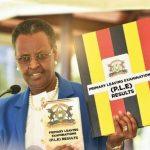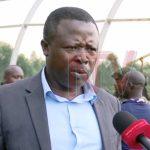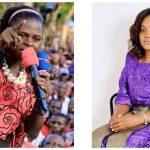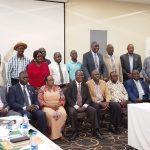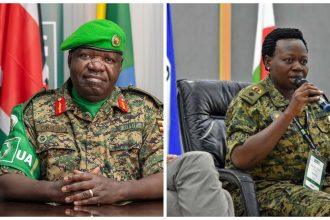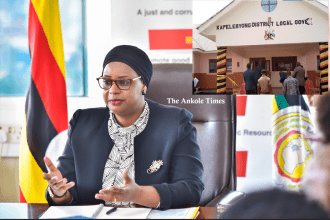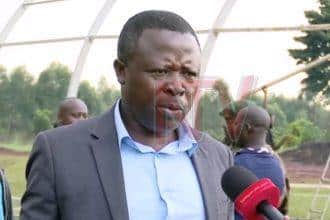The International Criminal Court (ICC), headquartered in The Hague, Netherlands, yesterday, Monday, April 7, 2025, dropped and dismissed all 14 appeals brought forward by the defense lawyers in the case of Dominic Ongwen.
The ruling, presided over by Ugandan Judge Solomy Balungi Bossa, deemed the appeals unsubstantial, lacking sufficient proof and evidence.
According to Mrs. Maria Mabinty Kamara, the Outreach Officer and Spokesperson for Uganda at the ICC, the 14 appeals raised by the defense lawyers cited several alleged omissions and failures to provide information.
These included: allegations of failure by the Trial Chamber to provide and disclose the potential names of victims; allegations of failure to incorporate the Acholi Traditional System into the reparation mechanisms (which the court rejected); alleged mistakes in prioritizing eligible victims for reparations; allegations regarding the assessment of moral harm suffered by victims without ascertaining psychological harm (as it wasn’t raised during Ongwen’s trial); and seven grounds of appeal alleging errors in the documentation of medical requirements for victims during the trial. The court rejected and dismissed all these allegations, citing the timeframes in which the issues were raised, which could contradict the initial judgment passed during Dominic Ongwen’s trial.
Ongwen, believed to have been abducted en route to school at the age of nine and who rose to become a high-ranking commander known as the “White Ant” in the Lord’s Resistance Army (LRA), was convicted on 61 counts and sentenced to 25 years in prison on January 4, 2024.
In a related development, the Appeals Chamber judges have ordered the commencement of the registration process for victims to benefit from reparations. An estimated total of 49,722 victims are expected to benefit from a total allocation of approximately 52 million euros, with a symbolic payment of 750 euros per victim in Dominic Ongwen’s case. The judges have therefore ordered the registration process for victims to begin within two weeks, according to the ICC Outreach Officer and Spokesperson for Uganda, Mrs. Maria Mabinty Kamara.
“Thirty-five clerks have been trained to conduct the registration exercise in the affected areas. The process will be supervised by government representatives and local leaders to assist in identifying eligible persons for registration and reparations in the case of Dominic Ongwen. The entire registration and verification process is expected to take two years, and we anticipate an additional year to ensure adherence to the ‘Victim No Harm’ principle,” stated Kamara.
On February 28, 2024, the court issued orders for the reparation of 49,722 war victims in Dominic Ongwen’s case, allocating 52.429 million euros for symbolic payments, rehabilitation programs (including medical, psychological, social, and economic support), community healing initiatives, and memorial measures for communities and individuals who suffered atrocities in former Internally Displaced Persons (IDP) camps during the LRA insurgency in Northern Uganda.
The registration exercise will be conducted in the areas of Abok, Lokodi, Pajule, Odek, Lapul, Abia, and Barlonyo, with clerks moving throughout the villages within these identified areas under the close supervision of local leaders (LC1s, LC2s, LC3s, LC5s) and the Resident District Commissioner (RDC) to facilitate the registration and selection of eligible beneficiaries for reparations in the case of Dominic Ongwen.
Established under Article 79 of the Rome Statute, a Trust Fund benefits victims of crimes in Dominic Ongwen’s case. Reparations are structured to include a symbolic payment of 790 euros per victim, rehabilitation programs encompassing medical, psychological, social, and economic support, and community healing through memorials, cultural, and religious ceremonies, among other measures.
By May and August 2024, the ICC had already conducted a feasibility study and held consultations with over 3,000 people from the affected areas of Abok, Lukodi, Odek, Lapul, Pajule, and others regarding the reparation process, primarily to manage expectations related to the reparations.










